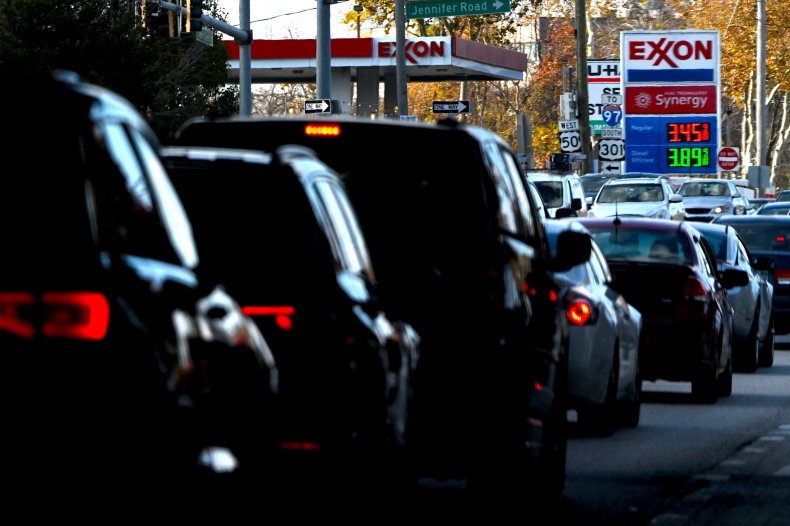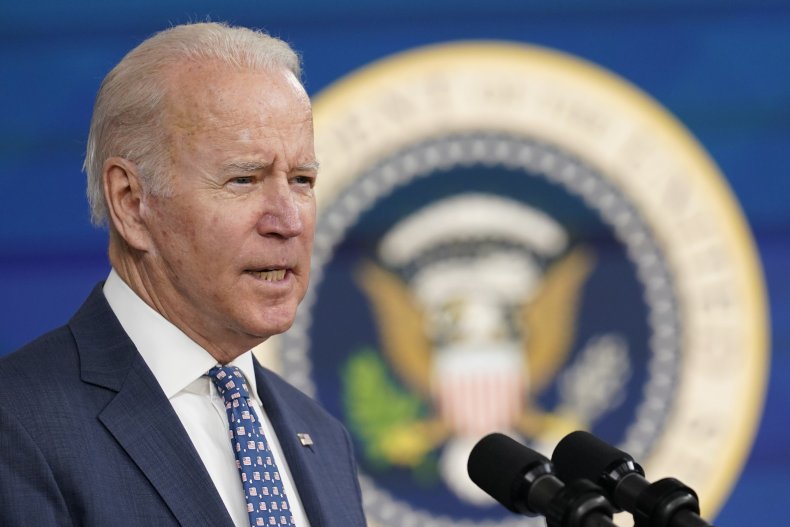Traders Unmoved By Biden Releasing Oil Barrels From Reserves, Stock Prices Rise
Despite President Joe Biden releasing 50 million barrels of oil from America's Strategic Petroleum Reserve, investors saw stock prices increase by 2 percent, according to the Associated Press.
This underwhelming news comes as the consumer price index across the United States soared to 6.2 percent. One expert speculates that the lack of trading is the result of the oil release being temporary and not a permanent measure.
"Once it is stopped, then if demand continues to be above supply like it is right now, then you're back to square one," explained Claudio Galimberti, who currently serves as the senior vice president for oil markets at Rystad Energy.
The oil barrels will be moved into the market in mid-to-late December. However, gas prices are not expected to drop significantly in time for the holidays. According to the American Automobile Association, gas prices are approximately $3.40 a gallon, which is 50 percent higher than a year ago.
The Strategic Petroleum Reserve's oil will be available in two ways: 32 million barrels are scheduled for release over the next few months and will eventually return to the reserve, and another 18 million barrels will be part of a Congress-authorized oil sale with other countries.
"Oil supply has not kept up with demand, forcing working families and businesses to pay the price," said Energy Department secretary Jennifer Granholm in a statement. "This action underscores the president's commitment to using the tools available to bring down costs for working families and to continue our economic recovery."
The U.S. is not the only country expected to release oil from its reserves. India has announced its plans to release 5 million barrels of oil from its reserves, while Britain plans to release up to 1.5 million barrels. South Korea and Japan will participate as well, although the amount of barrels being released has not been confirmed.
For more reporting from The Associated Press, see below.

The U.S. action is aimed at global energy markets, but also at U.S. voters who are coping with higher inflation and rising prices ahead of Thanksgiving and winter holiday travel.
Prime Minister Boris Johnson's spokesman, Max Blain, said it was "a sensible and measured step to support global markets" during the pandemic recovery. Blain added that British companies will be authorized but not compelled to participate in the release.
The actions by the U.S. and others also risk counter moves by Gulf nations, especially Saudi Arabia, and by Russia. Saudi Arabia and other Gulf countries have made clear they intend to control supply to keep prices high for the time being.
As word spread in recent days of a coming joint release from U.S. and other countries' reserves, there were warnings from Organization of the Petroleum Exporting Countries (OPEC) interests that those countries may respond in turn, reneging on promises to increase supplies in coming months.
Biden has scrambled to reshape much of his economic agenda around the issue of inflation, saying that his recently passed $1 trillion infrastructure package will reduce price pressures by making it more efficient and cheaper to transport goods.
Senate Republican Leader Mitch McConnell tore into the White House in a floor speech last week, saying the victims of higher prices were middle-class Americans.
"The three biggest drivers of the staggering 6.2 percent inflation rate we logged last month were housing, transportation, and food," the Kentucky senator said. "Those aren't luxuries, they're essentials, and they take up a much bigger share of families' budgets from the middle class on down."
The Strategic Petroleum Reserve is an emergency stockpile to preserve access to oil in case of natural disasters, national security issues and other events. The reserves are stored in caverns created in salt domes along the Texas and Louisiana Gulf Coasts. There are roughly 605 million barrels of petroleum in the reserve.
The Biden administration has argued that the reserve is the right tool to help ease the supply problem. Americans used an average of 20.7 million barrels a day during September, according to the Energy Information Administration. That means that the release nearly equals about two-and-a-half days of additional supply.
The pandemic roiled energy markets. As the closures began in April 2020, demand collapsed and oil futures prices turned negative. Energy traders did not want to get stuck with crude that they could not store. But as the economy recovered, prices jumped to a seven-year high in October.
U.S. production has not recovered. Energy Information Administration figures indicate that domestic production is averaging roughly 11 million barrels daily, down from 12.8 million before the pandemic started.
Republicans have also seized on Biden's efforts to minimize drilling and support renewable energy as a reason for the decreased production, though there are multiple market dynamics at play as fossil fuel prices are higher around the world.
Meanwhile, Biden and administration officials insist that tapping more oil from the reserve does not conflict with the president's long-term climate goals, because this is a short-term fix to meet a specific problem, while climate policies are a long-term answer over decades.
They argue that because they are pushing to boost renewable energy, there will eventually be less dependence in the U.S. on fossil fuels. But that's a politically convenient argument—in simple terms, higher prices reduce usage, and significantly higher gasoline prices could force Americans into less reliance on fossil fuels.
"The only long term solution to rising gas prices is to continue our march to eliminate our dependence on fossil fuels and create a robust green energy economy," Senate Democratic Leader Chuck Schumer said in support of the release.
The White House decision comes after weeks of diplomatic negotiations. Biden and President Xi Jinping of China talked over steps to counter tight petroleum supplies in their virtual meeting earlier this month and "discussed the importance of taking measures to address global energy supplies," according to the White House.
White House Press Secretary Jen Psaki said Monday evening the White House would keep tabs on the oil companies that "have made record profits" and will watch for price-gouging "when there's a supply of oil or the price of oil is coming down and the price of gas is not coming down."


